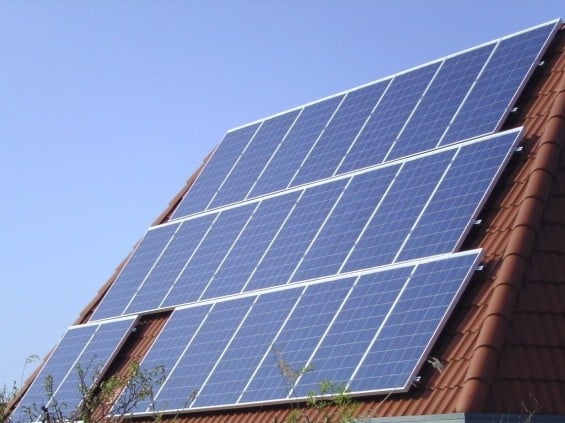
The Low Down on Solar Leases: are they too good?
Are solar leasing programs too good to be true? first tuesday responds to reader feedback on our recent interview with SolarCity.
The lowdown on solar leases
Purchasing and installing solar panels is expensive: it takes homeowners an average of 20 years to pay off a solar installation. Leasing solar panels is a cost-effective alternative to a solar panel purchase.
Most solar lease programs offer a zero money down option. Under these leases, homeowners lock in a reduced electrical rate and a full warranty for the duration of the lease. All a homeowner needs is:
- an area to dock the solar panels (typically a roof);
- adequate exposure to sunlight; and
- a good credit score (680+).
Does a reduced utility bill with no financial investment on the homeowner’s part sound too good to be true? Some first tuesday readers thought so. Their concerns – and some resolutions – follow.
Solar isn’t for everyone
Solar energy leases may be hot, but they don’t make sense for everyone. Before a homeowner puts themselves on the hook for a long-term lease, they need to ask themselves:
- Will installing solar panels increase my home’s value?
- Will installing solar panels save me money on my monthly bills?
- Will the savings from solar panels outweigh the potential difficulties or extra costs of selling my house with an existing solar lease?
If their main objective is to save money on energy costs over time, a solar lease may be right for them. However, if they are planning to sell their home within the next few years, then the solar lease may not be the best idea. Knowing the numbers and facts will help homeowners arrive at the best decision for them.
Actual savings from a solar lease will depend on the size and output of the solar panel system. The first step for homeowners is to get a free estimate of the solar panel system suitable for their home, and a general idea of the fixed-rate for solar power. The next step is for the homeowner to compare their current electric bill with the fixed-rate electric bill offered by a solar lease.
Consider a homeowner who spends $200 a month on electricity. If the fixed-rate solar lease saves them $30 a month (roughly 15%, the average savings per SolarCity), that’s $360 a year back in their pocket. If the homeowner plans to sell and relocate within two or three years, the $360 saved each year may not be worth the extra effort needed to transfer or terminate the solar lease.
For those homeowners who will not be in their properties long-term, other energy-efficient improvements may be a better investment. Upgrading to EnergyStar appliances, or installing a whole house fan, can reduce the homeowner’s energy bills without a long-term lease.
Subsidies are artificial
Solar leasing programs rely heavily on government subsidies to pay for the cost of solar panel installation.
One concern is that all this easy government money creates a fertile breeding ground for new solar companies which pop up overnight, offer cheap equipment and employ unlicensed installers. Before signing a lease, homeowners will want to check the panels will be installed by qualified installers.
Who’s qualified? Any licensed electrician (electrical contractor with a C-10 designation), general engineering (A designation) or general building (B designation) contractor may install solar panels in California. However, a contractor with a C-46 (Solar Contractor) designation is specially trained and licensed to install solar panel systems. License validity can be checked online at the Contractor State License Board.
Another concern is solar company longevity. While the subsidies flow, business is good for solar companies. But once the government reduces subsidies in 2016, can these companies continue to exist? More importantly for homeowners, what will happen to the solar panels (and their 20- and 30-year warranties) if their solar company goes under?
To reduce the likelihood that their solar lease will be impacted by their solar company failing, homeowners considering a solar lease need to do their homework. There are no guarantees, but solar companies with some longevity in the region, and financial stability will provide a buffer against interruptions or changes to the solar lease. Homeowners can ask how many solar installations the company has completed. They can also check to see if the solar company has insurance for its warranties, should the company go under or be bought out.
Derailing a sale
Every agent seems to have experienced or know someone who has experienced a sale cancelled due to an unwanted solar lease. Here are some tips to help your sellers navigate a sale with a solar lease in tow.
If they do not already know, have your seller ask the solar company these questions before you list their property:
- What are the penalties for cancelling the solar lease prior to the end of the lease term?
- What are the fees for transferring a solar lease?
- What are the requirements for transferring a solar lease?
- If the solar panels are removed, who pays the removal costs?
- How will the solar company work with the homeowner to arrange a transfer or removal of solar panels?
- Does the solar company return the roof to its original condition after the solar panels are removed?
- Will the solar company provide their policies on these questions in writing?
Then, disclose the existence of the solar lease in the listing. This is to include the details of assuming the lease, or alternatives to assuming the lease. As with all property disclosures, it’s imperative that the prospective buyer and seller have the same information about the solar lease before, not after, the purchase agreement is inked!
The homeowner/seller can then plan for one of two events:
- the buyer is willing and able to assume the solar lease; or
- the buyer is unwilling and/or unable to assume the solar lease.
Most solar companies will transfer the solar lease, provided the homebuyer qualifies. Ideally, the homebuyer will agree to assume the solar lease upon purchasing the property from the seller. Even if they don’t qualify right away, solar companies will negotiate. They have an incentive to make it work: solar companies absorb the upfront costs of a zero-down lease, so the longer the lease runs, the lower the solar company’s turnover costs.
When the homebuyer doesn’t want to assume a solar lease initiated by the seller, agents can help negotiate by suggesting different options. For instance, perhaps the seller and homebuyer can split the cost of paying the lease cancellation penalty. Or, ask about options to move the solar panels so the seller can resume the lease in their new home.
U.S. taxpayer dollars don’t subsidize Chinese solar panels
Finally, some readers were concerned about foreign influence. It’s true that the majority of solar panels are manufactured in China. Many Chinese companies sell panels at below cost, using subsidies from the Chinese government, according to Forbes. So, are U.S. tax dollars going to Chinese solar manufacturers?
No, not really. Government subsidies (both here and abroad) have fueled solar use and thus the demand for solar panels. However, the rebate goes to the homeowner who purchases the panels. Or, in the case of solar leases, the company leasing the panels receives the rebate. Chinese solar manufacturers are being subsidized by their own government – not ours.
Sold on solar?
Energy costs (and energy savings!) are increasingly on the minds of homeowners and homebuyers. Solar is becoming more than a fad and the trend will continue beyond 2013. Therefore, information is key to preventing future issues when maintaining a system or selling a home. Agents specifically will benefit from knowing about potential issues arising from solar panel systems so they can ensure their sales involving solar leases goes smoothly.
